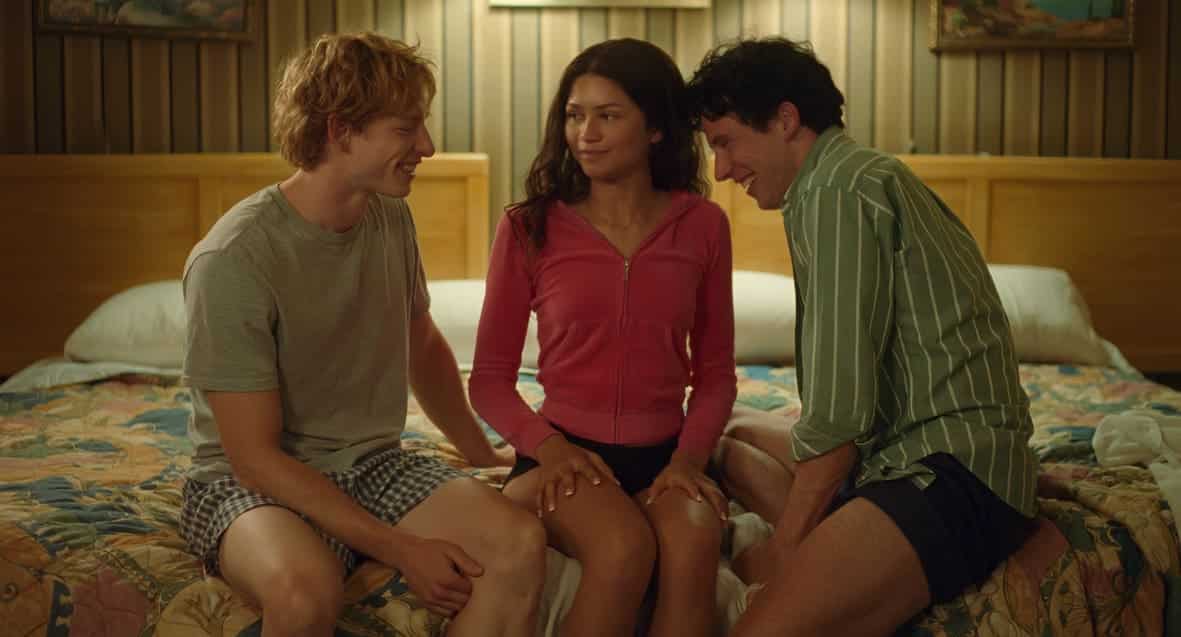
Does one ever not feel like Notting Hill’s bumbling protagonist William Thacker at a hotel press junket? Lost in an elephantine ballroom at Claridges on a gorgeous spring afternoon I feel particularly so. Before long I find myself seated in a Lynchian corridor next to another anxious journalist who keeps checking his reflection in the mirror.
I’m here to talk to the American writer Justin Kuritzkes about his debut script, Challengers, the hotly anticipated ménage-à-trois tennis flick from Luca Guadanigno. Darting between past and present, the film explores the relationship between tennis superstar-turned-coach Tashi Duncan (Zendaya) and former-best-friends-now-rivals Art Donaldson (Mike Faist) and Patrick Zweig (Josh O’Connor). Helmed by the searingly cool Zendaya, and with costumes from Loewe’s Jonathan Anderson, a duel between two dandy male leads and a head-pumping EDM soundtrack from Trent Reznor, Atticus Ross & Boys Noise, Challengers is a sexy, fun Shakespearean dramedy for the TikTok generation.
Underneath all the glad rags, this is an impressive debut script from Justin Kuritzkes. The thirty-something started out as a playwright after graduating from Brown University, with plays like The Sensuality Party touring universities in New York state. Kuritzkes became meme royalty after going viral for his hilarious 2011 YouTube video Potion Seller which catapulted him into fame. As if having Luca Guadanigno direct your screenwriting debut wasn’t enough, Kuritzkes has also adapted William S.Burroughs’ Queer for him after being handed the book by the Italian director on the set of Challengers (Daniel Craig and Drew Starkey are set to star). He’s now also been tapped to adapt Don Winslow’s contemporary retelling of The Illiad, City of Fire, with Austin Butler and Sony’s 3000, so it looks like Kuritzkes will be in the limelight for a while.
The writer lives in New York with his wife Celine Song, the Academy-Award nominated filmmaker behind Past Lives. A RABBIT’S FOOT sat down with him to discuss the erotics of doubles, collaborating with Luca and his love of reality television.
Issy Carr: I am curious to hear more about the writing process. What was the seed of the idea and how did it evolve?
Justin Kuritzkes: The kernel for the idea came from watching the US Open in 2018. There was this match between Serena Williams and Naomi Osaka and there was this very controversial call where the umpire accused Serena Williams of receiving coaching from the sidelines. Prior to that, I had not been a massive tennis fan, I just kind of happened to be watching it, but I had never heard of that rule and it struck me immediately as very cinematic. That you’re all alone on the court in this massive stadium, and there’s one other person who cares as much about what happens to you in this match as you do, and you can’t speak to them. And so immediately that day I started thinking, what if you had to talk about something really high stakes, beyond tennis—about your lives together? How would you have that conversation, and how would you communicate the tension of that situation using film, using the language of film? And it was immediately clear to me that only a movie could accomplish what I was seeing.
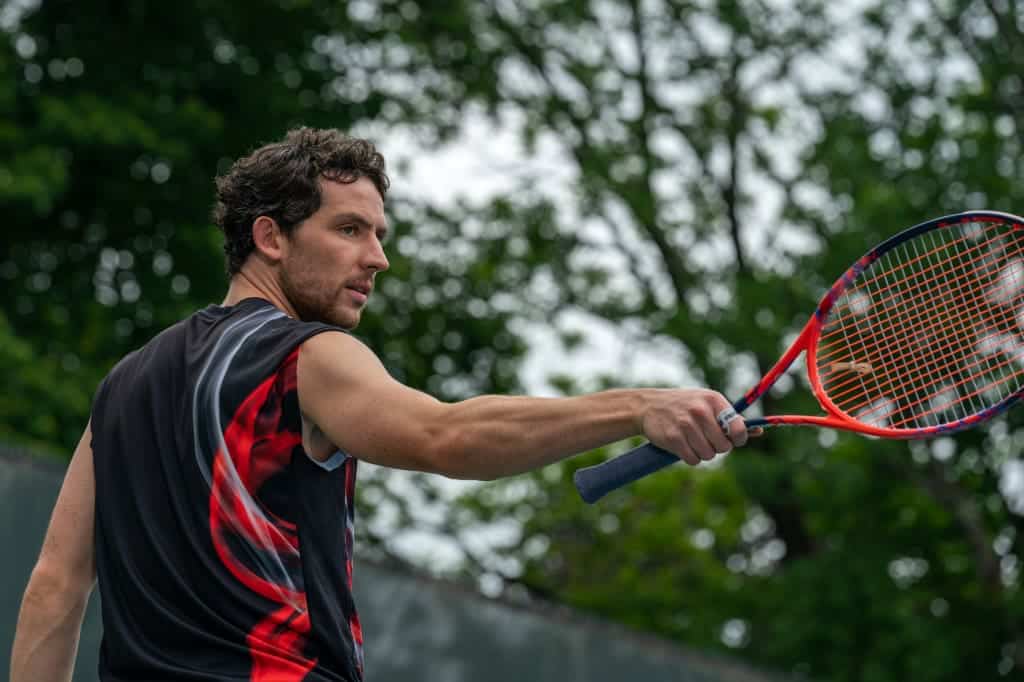
IC: Did you refrain from watching other tennis movies for fear it could disrupt this original take you were developing?
JK: I watched some of them, but I knew that this didn’t live in the same world as the tennis movies I had seen before. I wasn’t too worried about any sort of cross pollination. I just knew that a tennis movie like this didn’t exist, which is why I wanted to write it, because I wanted to see it. It’s a bit of a cliche, but I really wanted to write a movie because I wanted to watch that movie. Probably the most useful and gratifying tennis material that I consumed were [the tennis player] Andre Agassi’s biography Open and String Theory: David Foster Wallace on Tennis. It’s a collection of his tennis writing, which if you’re into the sport, is like eating chocolate truffles, like the most pleasurable thing in the world. I put off writing it for a long time because I didn’t want to pollute the love of tennis that I had. And then finally I just couldn’t wait any longer.
IC: When you put pen to page, did it all just flow?
JK: Yes and no. I was so pregnant with the idea of it that a lot of it was already there. I knew the structure and I knew some of the key moments. But then there was a lot of it, as is the case anytime you’re writing something, where you go in with just enough to get you started, just enough to get yourself over the terror of beginning something, and then you’re already in it, so it’s too late to back out.
IC: I’m curious to know whether you started writing the characters in the past or present sections that we experience in the film?
JK: I started with the present, because that was how the desire to watch this film presented itself to me. I was so deep in my obsession with watching tennis, particularly the eroticism, repression and tension of it that I started to wonder whether anything I could write would be as exciting as the original thing. How could I replicate the drama of the actual sport in my script? And for me, what would make it even better was if I could know on a microscopic level, what was at stake for everybody at every moment. I always knew that the joy of it was going to be being plunged into a match right at the start and then it becoming more meaningful as it goes on. So, the match in the first scene of the movie was the first thing I wrote.
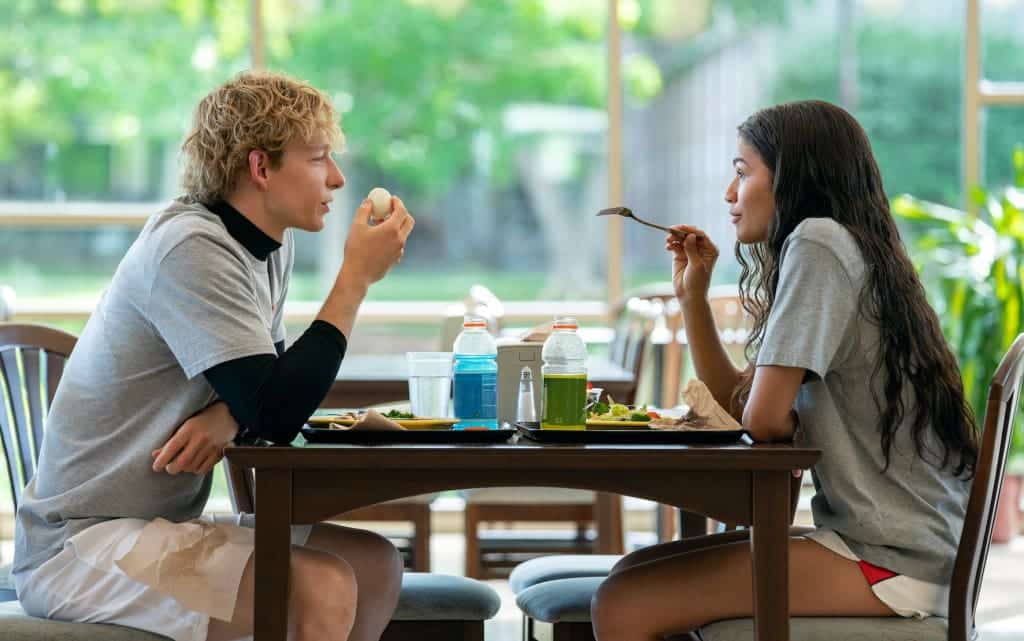
IC: Did you have anyone specific in mind when you wrote the character of Tashi Duncan (played by Zendaya)?
JK: She isn’t based on anybody, but there was this moment when I was watching a match between [Roger] Federer and [Novak] Djokovic at Wimbledon. Wimbledon is especially theatrical because it’s a bit smaller and it’s like theatre-in-the-round so it really feels Shakespearean. It’s a very stratified social order. And when they cut to the players’ boxes at Wimbledon, it feels especially presentational because you can’t hide there. So when Federer and Djokovic were playing, it was like this five-hour match, and they kept cutting to Federer’s wife, Mirka, who used to be a player and got injured and gave up her career and became his sort of manager. And every time they would cut to her during this match, she was beside herself with worry. Yet she also seemed so energised by the match. I immediately couldn’t help but think, what if there was more. What if there was a more interesting story of why this match matters so much to her?
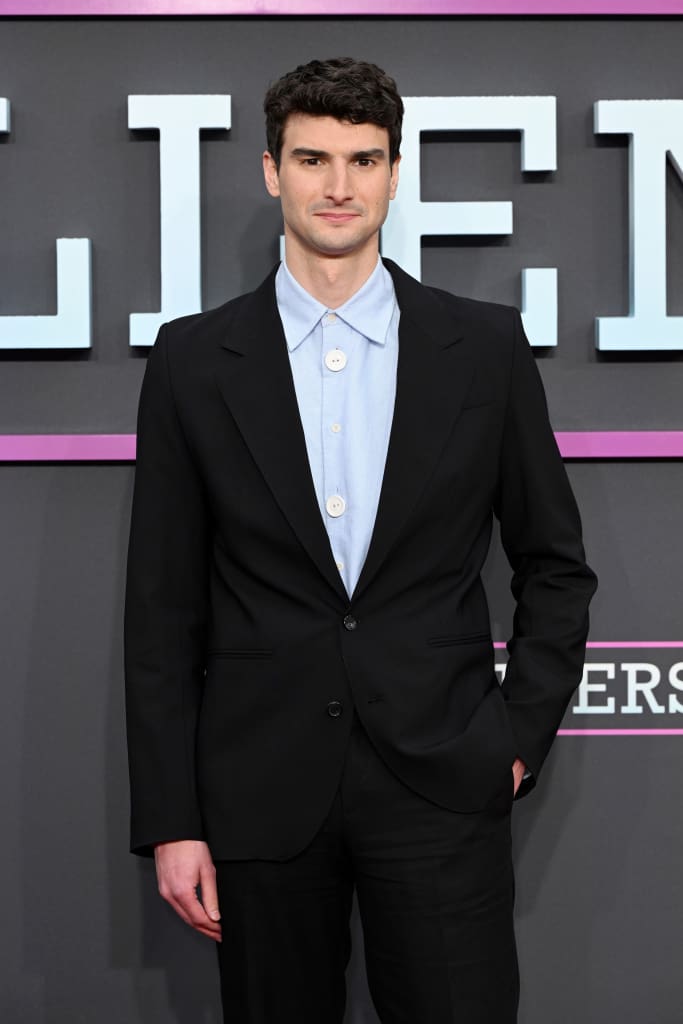
IC: Tell us about how the collaboration with Luca Guadanigno and Zendaya came about?
JK: I wrote the movie on spec, so really just because I wanted to write it. I didn’t have any expectations or thoughts about what would happen with it. Then I sent it to a few producers and decided to work with Spider-Man producers Amy Pascal and Rachel O’Connor. In our early conversations with them, Luca came up right away and Zendaya came up right away. And so we sent it to both of them. I was completely surprised and thrilled that Zendaya wanted to not just be in it but produce it. Luca was always somebody who I was thinking about for the movie. After I’d written it and he read it, he and I talked on the phone, then I think a week after we had first spoken, I was on a plane to Milan to spend a week with him just to see if we could vibe. It was clear pretty immediately that we were gonna be friends. I could tell immediately that we spoke the same language in a really deep way when it comes to film and when it comes to life, to some extent.
IC: Which of his earlier work do you love in particular?
JK: I think I saw Call Me By Your Name like four times in the theatre. But the first Luca movie I saw was I Am Love. When I was in college, there was this little art house movie theatre that would play one movie at a time and that was the movie. I’ve told Luca this—I don’t know that he has internalised it—but there’s a scene in I Am Love where soup is served and it means a lot to only two people, or three people, I should say. And that was a very inspiring moment when thinking about this movie.
IC: Were you present throughout production for Challengers?
JK: Yes. I was there throughout pre-production and on set the whole time. We shot almost all of it in Boston. Then a few days at the US Open in Queens.
IC: You live in New York, don’t you?
JK: I live in Manhattan but my whole family is from Queens. My parents grew up going to the US Open so that was very meaningful for me.
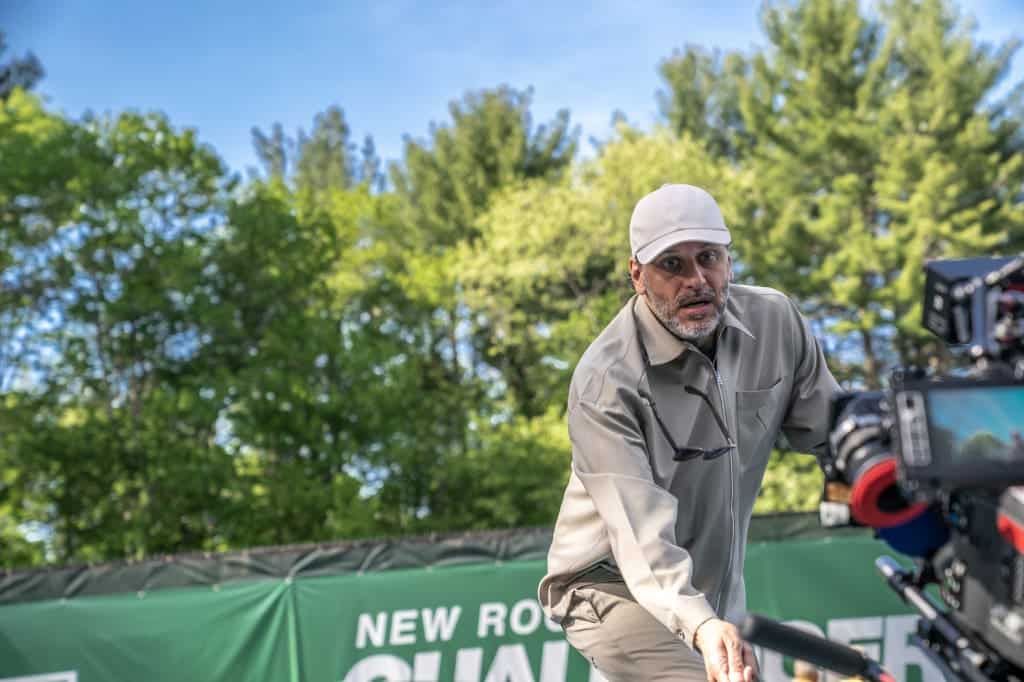
IC: What was it like shooting those tennis scenes?
JK: Brutal. It’s tough because you have to do everything four times. You have to do it with actors, with doubles, with balls, without balls, so it’s incredibly time consuming. Once you see the machinery of filmmaking, once you see the trucks unloading the gear, you can’t unsee that.
IC: Is there anything you watch at home so that you can not think about camera setups or that helps you switch off from the world of filmmaking?
JK: I almost exclusively watch reality television. I mean, I watch movies, but I also watch Love Island.
IC: Love Island is a commitment. People are like, ‘I’m watching Love Island this year’, it’s like ‘see you in 60 days then’.
JK: That’s how I feel when I tap into it. I’m almost hesitant to start a new season because I know this is hours of my life. You do get real human drama though, you get dialogue that is so specific and insane.
IC: Talk to us about Queer, your next project with Luca Guadanigno?
JK: Queer is an adaptation of a 1985 William S. Burroughs novel. Luca had wanted to make the movie forever and read the book as a teenager. I was incredibly honoured and touched when he gave me the book on the set of Challengers and said, “read this tonight and tell me if you want to write it”. And so I did. And I told him I wanted to do it. And it’s a really different movie from Challengers. Like, a completely different movie. It is Burroughs. So there is a surreal aspect to it, it’s very much a love story between two really complicated people. It’s really complex and agonising, but also a very beautiful love story. I felt this immense responsibility and privilege to be a kind of medium between these two brilliant men. One of them, who I don’t know, and the other one who I know and love very much. And I really felt like my job was to bring them together, to make them meet.
Challengers is in cinemas from April 26th





